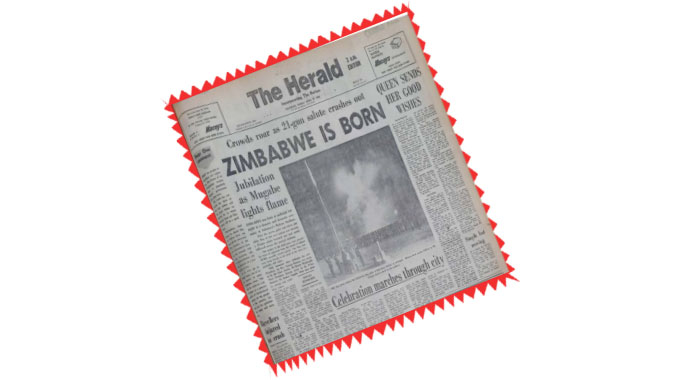Zim thanks South Africa
Mabasa Sasa in Tshwane
PRESIDENT Mugabe has thanked South Africa for its patience in dealing with the problem of illegal Zimbabwean immigrants in that country, while also calling for recognition of the contributions by his other countrymen and women in making that country Africa’s second-largest economy.
Addressing the media after the signing of various agreements with South Africa’s government at Union Buildings in Tshwane yesterday, President Mugabe said dialogue was always the best way for countries to resolve problems relating to immigration.
“Naturally, that must be resolved, people moving without passports into South Africa, some jumping our borders thinking there is lots of work in Johannesburg.
“We must find ways of controlling movement of people which is not sanctioned. I want to say to South Africa thank you for the hospitality that you have had, you looked after many …and we owe you not just a gesture of thankfulness which we must express, we owe you that thankfulness for the tolerance on the part of the government as our people have really offended your systems.
“We say, however, that these matters must be discussed and our relations must be strengthened as much as possible, that is as strongly as ever.
“We want peace and peace does not mean you must have a lion’s share and others have a baboon’s share, no.
“You are all together, let’s be equal (because) inequality can breed other problems in the future.
“We thank our ministers for the good work they have done. I am sure they have laid the basis, sound basis for greater integration.”
Home Affairs Minister Kembo Mohadi was part of President Mugabe’s delegation on the State visit though it could not be ascertained at the time of writing what headway had been in resolving this matter.
Zulu King Goodwill Zwelithini recently torched a storm by calling for South Africa to deport foreigners.
Historically, Zimbabweans – as well Mozambicans, Zambians and Malawians – have flocked to South Africa’s mines in search of work. The number of Zimbabweans in South Africa spiked at the turn of the millennium as Western sanctions took a toll on the local economy as part of a broad and intensive push to effect illegal regime change in Harare.
Immigration is a sore issue on this side of the Limpopo River, with the 2008 xenophobic attacks in particular showing how bad things are as 68 foreigners were massacred.
Last week, 250 foreigners – mostly from the DRC – fled their homes and businesses in Isipingo, Durban, after being viciously attacked by locals.
Violence has rocked Soweto and spread to KwaZulu-Natal, claiming at least three lives.
And three weeks ago, a Zimbabwean woman wrongly accused of killing a boy was lynched by a mob in a shanty township near South Africa’s capital, Pretoria.
President Zuma, through his spokesperson, this week apologised for the attacks, as did home affairs minister Malusi Gigaba and MP and Inkatha Freedom Party leader Chief Mangosuthu Buthelezi.
A related issue is that of the Zimbabwe Special Permit (ZSP) to regularise the stay of Zimbabweans who have been illegally living in South Africa.
The ZSP is the successor to the Dispensation of Zimbabweans Project of 2009.
The first plan was to create a record of Zimbabweans illegally living in South Africa so as to then provide an amnesty for them.
Some ZSP applicants are yet to get a response from South Africa’s home affairs department despite submitting to the process last year.
Permits were supposed to be issued within eight weeks of submitting paperwork.
As at March 13, 2015 South African authorities had received 208 967 online applications. Of these, the home affairs department said it had by the end of last month adjudicated 83 009 applications, amid indications that the process should be complete by August.
The permits are valid to December 31, 2017.
Requirements for the new permits include a valid Zimbabwean passport, proof of employment/ business registration, or proof of registration at a learning institution among others.
The special permit is not an application for asylum.





Comments